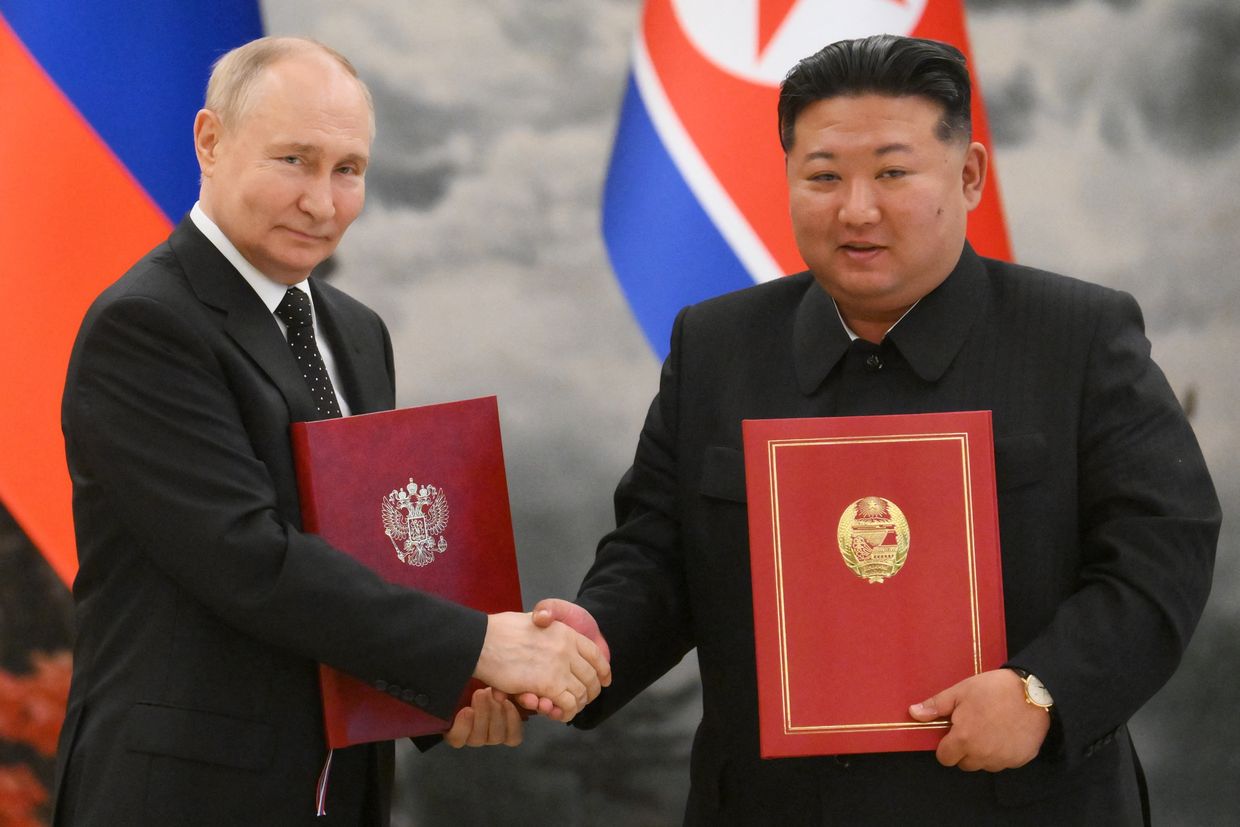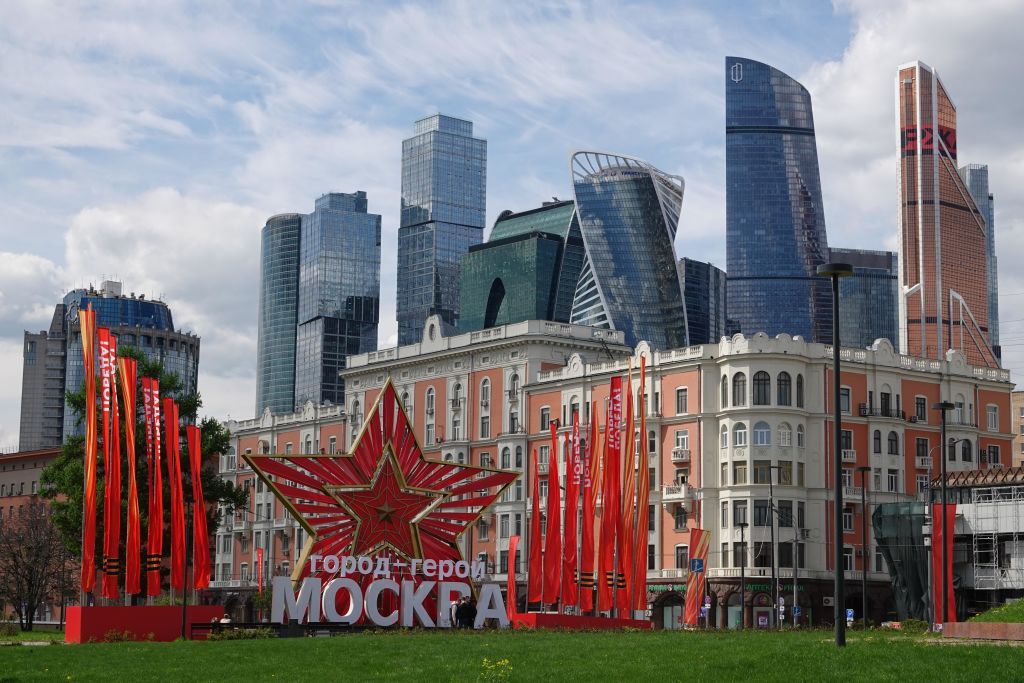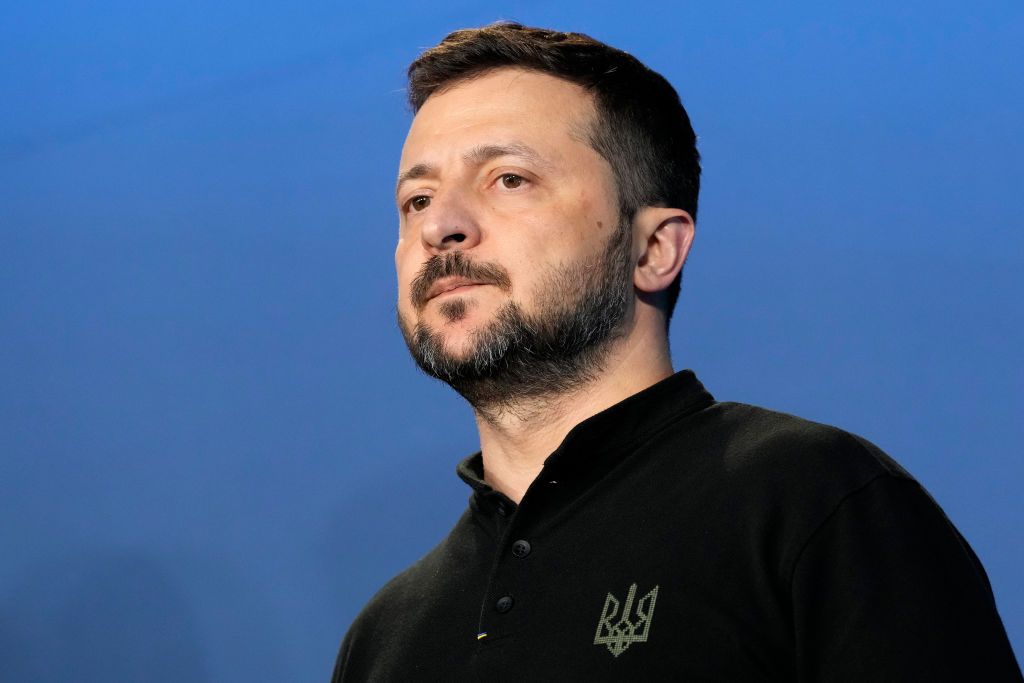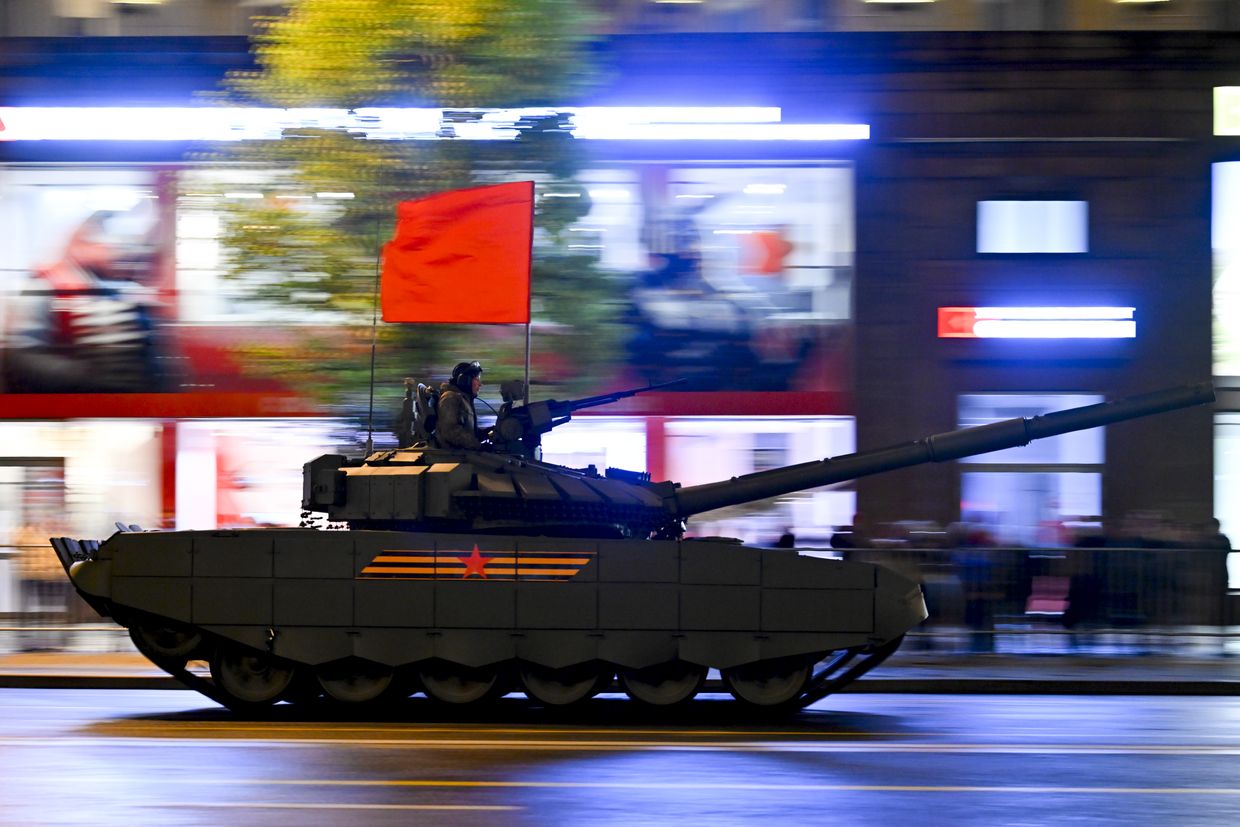"Think of the hundreds of thousands of lives that will be saved as this never ending 'bloodbath' hopefully comes to an end... I will continue to work with both sides to make sure that it happens."
"An unconditional ceasefire is not preceded by negotiations," French President Emmanuel Macron told reporters on May 11.
U.S. State Department Spokesperson Tammy Bruce called for "concrete proposals from both sides" in order for Washington to "move forward" in peace negotiations.
"If they speak to each other in Russian, he doesn't know what they are saying," one Western official told NBC News. Michael McFaul, former U.S. ambassador to Russia, called Witkoff's approach "a very bad idea."
Tougher sanctions "should be applied to (Russia's) banking and energy sectors, targeting fossil fuels, oil, and the shadow fleet," the leaders of Ukraine, the U.K., France, Germany, and Poland said in a joint statement.
"Russia is ready for negotiations without any preconditions," Putin claimed in an address marking the end of the three-day Victory Day ceasefire. He invited Ukraine to begin talks in Istanbul on May 15.
The American-made weapons cannot be exported, even by a country that owns them, without approval from the U.S. government.
While serving as a bishop in Peru, Robert Prevost, now Pope Leo XIV, called the full-scale war "a true invasion, imperialist in nature, where Russia seeks to conquer territory for reasons of power."
Speaking to CNN on May 10, Peskov commented on the latest ceasefire proposal from Ukraine and Europe, responding that Russia needs to "think about" it, but is "resistant" to pressure.
Speaking at a press conference in Kyiv on May 10, President Volodymyr Zelensky rebuked the idea of a demilitarized zone in the war and emphasized the importance of first securing a ceasefire.
"We agreed that a full and unconditional ceasefire must begin on Monday, May 12, for at least 30 days. We jointly demand this from Russia, and we know we are supported in this by the United States," Zelensky said.
The announcement follows mounting fears that the two nuclear-armed countries were on the brink of engaging in another full-scale war.
Ukrainian media outlet ZN.UA reported on May 10 that their law enforcement sources confirmed an ongoing probe by the National Anti-Corruption Bureau into suspected embezzlement, money laundering and bribery.
North Korea's current arms sales to Russia estimated at up to $5.5 billion, Friedrich Naumann Foundation suggests

North Korea is currently providing Russia with weapons worth up to $5.5 billion, according to a study by the Friedrich Naumann Foundation, published on Oct. 28.
Since the start of the full-scale invasion, Pyongyang has significantly increased its arms supplies to its longtime ally, Moscow, fueling its aggression against Ukraine. This fall, North Korea also sent troops to participate in the war on Russia's side, as confirmed by Ukrainian military intelligence.
Because North Korea and Russia do not publish official statistics on the country's bilateral trade, there is uncertainty. But even the minimum estimate of shipments is over $1.7 billion, the study reads.
North Korea's revenues could increase by "hundreds of millions of dollars," as Pyongyang will receive money for sending soldiers. Meanwhile, the deployment of more than 20,000 North Korean soldiers seems "unlikely," as it could jeopardize the stability of the North Korean regime. The risk of desertion and human resource constraints also stand in the way, according to the research.
The tightening of relations between Russia and North Korea is also reflected in "a notable rise" in diplomatic visits. Media analysis shows that since July 2023, there have been an average of two monthly high-level meetings. In 2024, there have already been over 24 such meetings. In the past three decades, the norm was less than five meetings, the study read.
"Russia is turning to North Korea primarily because of its massive need for ammunition," Olena Guseinova, the study's author, said.
"Russia is using its relationship with North Korea – and the potential transfer of military technology – as a tool to test the unity of Western alliances, particularly in East Asia. Russia aims to pressure countries like South Korea and Japan into reconsidering their support for Ukraine," Guseinova added.

Most Popular

After 3 years of full-scale war in Ukraine, Europe announces plan to ban all Russian gas imports

Journalist Roshchyna's body missing organs after Russian captivity, investigation says

Ukrainian sea drone downs Russian fighter jet in 'world-first' strike, intelligence says

'Justice inevitably comes' — Zelensky on deaths of high-ranking Russian officials

Kremlin says Russia ready for mass mobilization like in WWII 'at any moment'
Editors' Picks

How medics of Ukraine’s 3rd Assault Brigade deal with horrors of drone warfare

As Russia trains abducted children for war, Ukraine fights uphill battle to bring them home

'I just hate the Russians' — Kyiv district recovers from drone strike as ceasefire remains elusive



